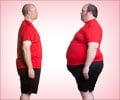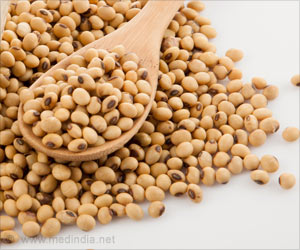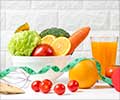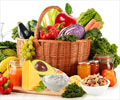The snacking dilemma! Learn how your snack choices affect your health.
- Your snack choices have a huge influence on your health
- Unveiling the pitfalls of sugary and processed snacks, this study reveals how one in four individuals may be undermining their healthy eating efforts
- Key to good health is to snack smart and protect your well-being, one bite at a time
The Science of Snacking
Go to source).
The Snacking Conundrum
If you're among the individuals who have made a conscious effort to eat healthier meals, congratulations on your commitment to better health!However, have you considered what you're snacking on between those nutritious meals?
According to a new study, approximately one in four individuals may be undermining the advantages of their healthy eating habits by opting for ultra-processed and sugary snacks.
Sarah Berry, a researcher at King's College London and the senior author of the study, highlights the significance of snack choices, stating, "Considering 95 percent of us snack, and that nearly a quarter of our calories come from snacks, swapping unhealthy snacks such as cookies, crisps, and cakes for healthy snacks like fruit and nuts is a really simple way to improve your health."
The Prevalence of Snacking
In both the United States and the United Kingdom, snacking is a common practice. In the U.S., more than 90 percent of adults report consuming one or more snacks each day. In the U.K., where the study was conducted, 47 percent of participants reported having two snacks a day, and 29 percent snacked even more frequently.However, what's concerning is that over 25 percent of the study participants reported consuming healthy main meals but resorting to highly processed and sugary snacks. These unhealthy choices can lead to increased hunger, as revealed by the study.
Protecting Your Food Environment
Dr. David Katz, a specialist in preventive and lifestyle medicine and nutrition, emphasizes the importance of treating our food environment with the same care as we do with the weather. Just as we prepare for adverse weather conditions with appropriate clothing and tools, we should take proactive steps to protect our dietary choices against the "climate" of junk food.Katz, the president and founder of the nonprofit True Health Initiative, suggests that we should not leave our food choices to chance but instead make conscious decisions to support our health. His research focuses on using food as preventive medicine, reinforcing the idea that we have control over our dietary choices.
Snack Choice and Timing
The study, published in the European Journal of Nutrition, delved into the snacking habits of 854 individuals participating in the Zoe Predict study, a collaborative effort involving institutions in the United States and Europe.The study uncovered significant associations between poor snack choices and health issues, including a higher body mass index (BMI), increased visceral fat mass, and elevated postprandial triglycerides levels, all linked to metabolic diseases like stroke, cardiovascular disease, and obesity.
Moreover, the timing of snacking played a crucial role. Snacking after 9 p.m. was linked to the consumption of calorie-dense foods rich in fat and sugar. Individuals who snacked late displayed worse blood markers, potentially increasing their risk of chronic diseases compared to those who snacked earlier in the day.
Making Informed Snack Choices
It's important to note that not all snacking is unhealthy. Participants who regularly opted for nutritious snacks like nuts and fresh fruit were more likely to maintain a healthy weight compared to non-snackers or those who chose less healthy options.Dr. Katz recommends a practical approach to snacking by carrying convenient, nutritious foods that you enjoy. This way, you can make mindful choices when hunger strikes, ensuring that your snacks align with your health goals.
In conclusion, the snacks you choose and when you consume them can significantly impact your overall health. By selecting healthier options and paying attention to the timing of your snacks, you can maintain the positive effects of your nutritious meals and work toward a healthier, more vibrant you.
Reference:
- The Science of Snacking - (https://www.hsph.harvard.edu/nutritionsource/snacking/)
Source-Medindia
















